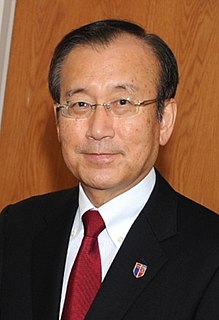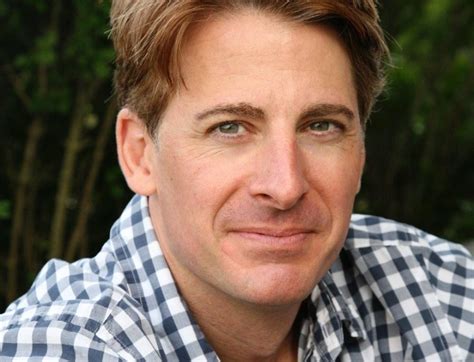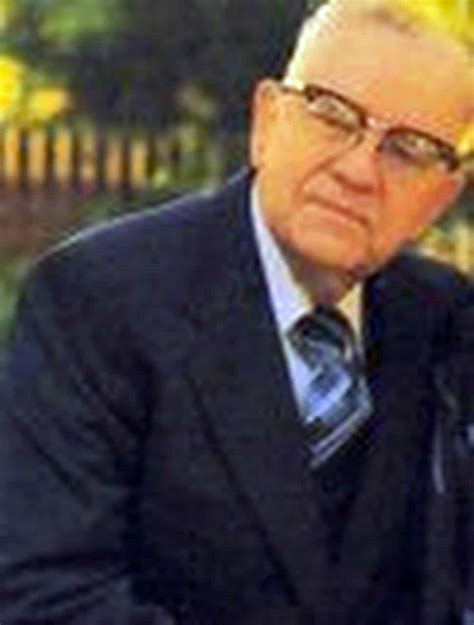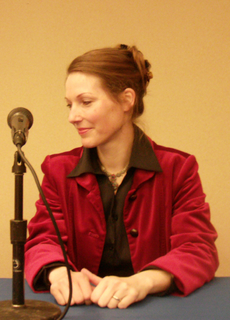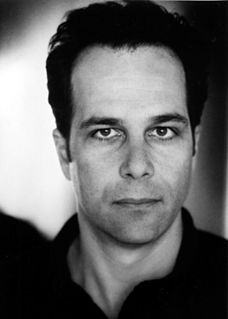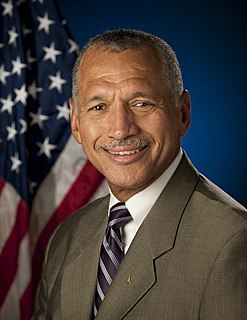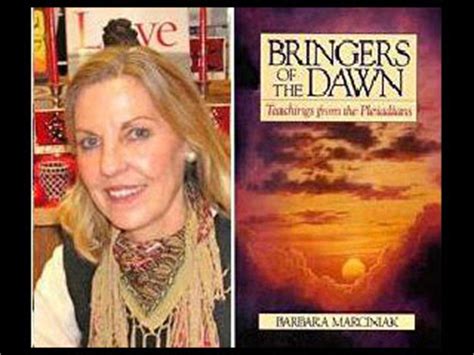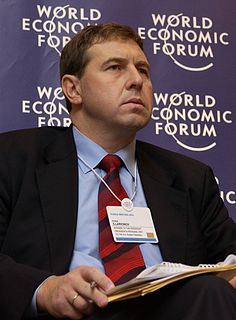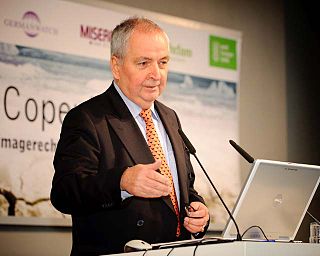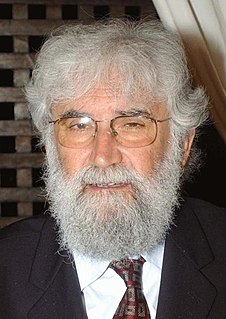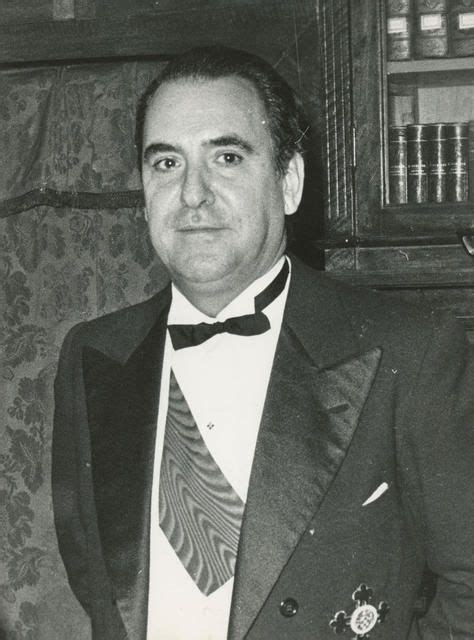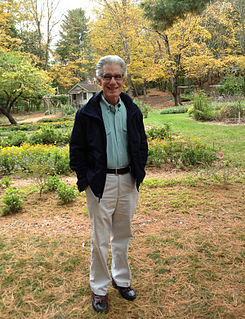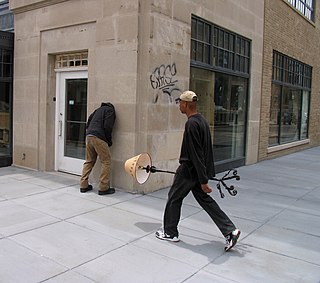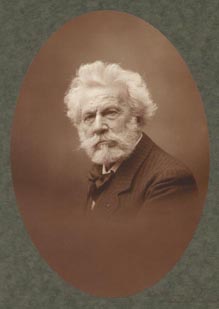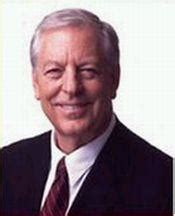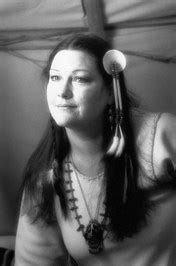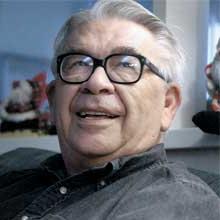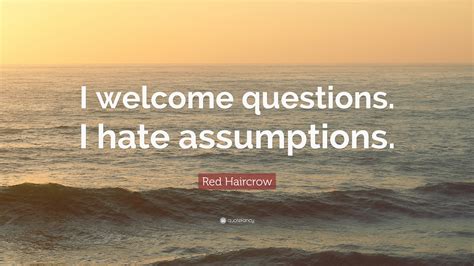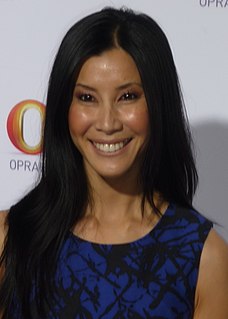Top 493 Humankind Quotes & Sayings - Page 8
Explore popular Humankind quotes.
Last updated on April 22, 2025.
In some ways more painful is the fact that their experience appears to be fading from the collective memory of humankind. Having never experienced an atomic bombing, the vast majority around the world can only vaguely imagine such horror, and these days, John Hersey's Hiroshima and Jonathan Schell's The Fate of the Earth are all but forgotten. As predicted by the saying, 'Those who cannot remember the past are condemned to repeat it,' the probability that nuclear weapons will be used and the danger of nuclear war are increasing.
It's perfectly clear to me that religion is a myth. It's something we have invented to explain the inexplicable. My religion and the spiritual side of my life come from a sense of connection to the humankind and nature on this planet and in the universe. I am in overwhelming awe of it all: It is so fantastic, so complex, so beyond comprehension. What does it all mean -- if it has any meaning at all? But how can it all exist if it doesn't have some kind of meaning? I think anyone who suggests that they have the answer is motivated by the need to invent answers, because we have no such answers.
But I have to say this in defense of humankind: In no matter what era in history, including the Garden of Eden, everybody just got here. And, except for the Garden of Eden, there were already all these games going on that could make you act crazy, even if you weren't crazy to begin with. Some of the crazymaking games going on today are love and hate, liberalism and conservatism, automobiles and credit cards, golf, and girls' basketball.
I know what cancer was. How is it like humankind?" Sek Hardeen's perfectly modulated, softly accented tones showed a hint of agitation. "We have spread out through the galaxy like cancer cells through a living body, Duré. We multiply without thought to the countless life forms that must die or be pushed aside so that we may breed and flourish. We eradicate competing forms of intelligent life.
I have long admired the visceral storytelling and moral complexity of John Vaillant’s brilliant non-fiction about humankind’s tragically ambivalent relationship with the natural world. Now he brings his abundant literary gifts to a debut novel set in a very real borderland in which human beings are themselves treated like animals. The Jaguar’s Children is a beautifully rendered lament for an imperiled culture and the brave lives that would preserve it. You should read it.
Through the plan of prayer, God actually is inviting redeemed man into full partnership with Him; not in making the divine decisions, but in implementing those decisions in the affairs of humankind. Independently and of His own will, God makes the decisions governing the affairs of earth. The responsibility and authority for the enforcement and administration of those decisions, He has place upon the shoulders of the church.
The sun with loving light makes bright for me each day, the soul with spirit power gives strength unto my limbs. In sunlight shining clear I revere, Oh God, the strength of humankind, which thou has planted in my soul, that I may with all my might, may love to work and learn. From thee stream light and strength to thee rise love and thanks.
The Amazons is a stupendous achievement--a long-anticipated centerpiece in the great puzzle of humankind. The story of these forbidden women, silenced for so long by the rigidity of traditional scholarship, is as exciting and surprising as a bestselling murder mystery; I simply couldn't put it down. Through scholarly brilliance and passion, Adrienne Mayor has opened the door to a forgotten world of gender equality, and her book ought to be required reading in every college history course.
At whatever time highly skilled physicians shall have developed the healing of illnesses by means of foods, and shall make provision for simple foods, and shall prohibit humankind from living as slaves to their lustful appetites, it is certain that the incidence of chronic and diversified illnesses will abate, and the general health of all mankind will be much improved. This is destined to come about. In the same way, in the character, the conduct and the manners of men, universal modifications will be made.
Anxieties about ourselves endure. If our proper study is indeed the study of humankind, then it has seemed-and still seems-to many that the study is dangerous. Perhaps we shall find out that we were not what we took ourselves to be. But if the historical development of science has indeed sometimes pricked our vanity, it has not plunged us into an abyss of immorality. Arguably, it has liberated us from misconceptions, and thereby aided us in our moral progress.
The past history of human belief is a cautionary tale. We have killed thousands of our fellow human beings because we believed they had signed a contract with the devil, and had become witches. We still kill more than a thousand people each year for witchcraft. In my view, there is only one hope for humankind to emerge from what Carl Sagan called "the demon-haunted world" of our past. That hope is science.
There is as yet no civilized society, but only a society in the process of becoming civilized. There is as yet no civilized nation, but only nations in the process of becoming civilized. From this standpoint, we can now speak of a collective task of humankind. The task of humanity is to build a genuine civilization.
I'm not pro-war. But I think war has been the dominant condition of humankind, and peace has been the anomaly - certainly sustained periods of peace that profit great masses of people - and I think war has worked, even awful hellish wars: worked to staunch fascist aggression in Europe, worked to preserve the Union after secession in the United States, etc. Not always, maybe not often, but to say never is to reject history in favor of a wishful unreality.
When describing nature, a writer should seize upon small details, arranging them so that the reader will see an image in his mind after he closes his eyes. For instance: you will capture the truth of a moonlit night if you'll write that a gleam like starlight shone from the pieces of a broken bottle, and then the dark, plump shadow of a dog or wolf appeared. You will bring life to nature only if you don't shrink from similes that liken its activities to those of humankind.
I believe that to meet the challenge of our times, human beings will have to develop a greater sense of universal responsibility. We must all learn to work not just for our own self, family, or nation but for the benefit of all humankind. Universal responsibility is the key to human survival. It is the best foundation for world peace, the equitable use of natural resources, and through concern for future generations, the proper care of the environment.
As long as there are history books, Neil Armstrong will be included in them, remembered for taking humankind’s first small step on a world beyond our own. Besides being one of America’s greatest explorers, Neil carried himself with a grace and humility that was an example to us all. When President Kennedy challenged the nation to send a human to the moon, Neil Armstrong accepted without reservation. As we enter this next era of space exploration, we do so standing on the shoulders of Neil Armstrong.
If you think you have no power over what happens in the outside world, this is a belief and an agreement you have made between yourself and the field of existence. Your cells hear this command about your place in reality and do everything possible to make certain, in whatever situation you meet, that you have no power over events. Your beliefs establish the instructions for how you want to operate your biological being, and in these times of tremendous acceleration, humankind is faced with the responsibility of learning how to manage the energy of thought
This is why God created so many different religions: to be training grounds to make a path for every people, culture, custom, and tradition. Religions polish people to be qualified to enter the region of the original homeland. Because of humankind's many different cultural backgrounds, God sought and set the standard of comparison and has been leading the way toward one unified religious world.
The majority of humankind does not accept this system, despite claims of worldwide support. Even with Russia's ratification, 75% of the world's CO2 is emitted by, 68% of the world's GDP is produced in, and 89% of the world's population live in countries that are not handcuffed by Kyoto's restrictions. Like fascism and communism, Kyotoism is an attack on basic human freedoms behind a smokescreen of propaganda. Like those ideologies of human hatred, it will be exposed and defeated.
Hearing, seeing and understanding each other, humanity from one end of the earth to the other now lives simultaneously, omnipresent like a god thanks to its own creative ability. And, thanks to its victory over space and time, it would now be splendidly united for all time, if it were not confused again and again by that fatal delusion which causes humankind to keep on destroying this grandiose unity and to destroy itself with the same resources which gave it power over the elements.
The human species does not necessarily move in stages from progress to progress ... history and civilization do not advance in tandem. From the stagnation of Medieval Europe to the decline and chaos in recent times on the mainland of Asia and to the catastrophes of two world wars in the twentieth century, the methods of killing people became increasingly sophisticated. Scientific and technological progress certainly does not imply that humankind as a result becomes more civilized.
Each one of us is responsible for the whole of humankind. We need to think of each other really as brothers and sisters and to be concerned for each other’s welfare. Rather than working solely to acquire wealth, we need to do something meaningful, something directed seriously towards the welfare of humanity as a whole.
The tragedy of a species becoming unfit for life by over-evolving one ability is not confined to humankind. Thus it is thought, for instance, that certain deer in paleontological times succumbed as they acquired overly-heavy horns. The mutations must be considered blind, they work, are thrown forth, without any contact of interest with their environment. In depressive states, the mind may be seen in the image of such an antler, in all its fantastic splendour pinning its bearer to the ground.
I struggle sometimes superficially with my management or with my own career about how much time I spend traveling or giving myself away to promote my music or myself when I'd rather be gardening or surfing or being at home with my loved ones. And everyone struggles with that; everyone struggles with having to go to work. And I struggle with how humankind ended up this way.
If we have plain old ordinary fear then we are within reach of a solution. Fear has been with humankind for millennia and we do know what to do about it-pray about it, talk about it, feel the fear, and do it anyway. Artistic fear, on the other hand, sounds somehow nastier and more virulent, like it just might not yield to ordinary solutions-and yet it does, the moment we become humble enough to try ordinary solutions.
We are about to enter a new era in which, each year, less net energy will be available to humankind, regardless of our efforts or choices. The only significant choice we will have will be how we adjust to this new regime. That choice - not whether, but how to reduce energy usage and make a transition to renewable alternatives - will have profound ethical and political ramifications.
The IPCC (Intergovernmental Panel on Climate Change, a group of more than 2,500 scientists) has provided the world community with first class assessments of the soaring temperatures the world is facing, the devastating impacts of these rises and the ways in which we can try and avoid the worst effects of global warming. We now know climate change is real and the hand of humankind in this warming is becoming clearer and clearer.
...a human being not only can choose but... he must choose... for in this way God retains His honor while at the same time has a fatherly concern for humankind. Though God has lowered Himself to being that which can be chosen, yet each person must on his part choose. God is not mocked. Therefore the matter stands thus: If a person avoids choosing, this is the same as the presumption of choosing the world.
There is, fortunately, a minority composed of those who recognize early in their lives that the most beautiful and satisfying experiences open to humankind are not derived from the outside, but are bound up with the development of the individual's own feeling, thinking and acting. The genuine artists, investigators and thinkers have always been persons of this kind. However inconspicuously the life of these individuals runs its course, none the less the fruits of their endeavors are the most valuable contributions which one generation can make to its successors.
Infancy is the realm conveyed to us in dreams which look backward to the past. Adolescence, more like a work of art, is a prospective symbol of personal synthesis and of the future of humankind. Like a work of art that sets us on the pathway to new discoveries, adolescence promotes new meanings by mobilizing energies that were initially invested in the past.
Today social justice represents one of the most serious challenges to the conscience of the world. The abyss between those who are within the world 'order' and those who are excluded is widening day by day. The use of leading-edge technologies has made it possible to accumulate wealth in a way that is fantastic but perverse because it is unjustly distributed. Twenty-percent of humankind control eighty percent of all means of life. That fact creates a dangerous imbalance in the movement of history.
Hiding behind such sacred terms as human rights and distributive justice, politicians and intellectuals alike have perpetrated a gargantuan ruse on humankind: they have convinced us that mass homogeneity is more essential for the betterment of society than is individual initiative, and they have adorned this dubious assumption with assurances that by leveling all distinctions between human beings, collective peace and unity will result as a matter of course, just as water runs downhill or the cart follows the ox.
Technical Utopias-flying, for example-have been achieved by the new science of nature.The human utopia...a united new humankind living in solidarity and peace, free from economic determination and from war and class struggle-can be achieved, provided we spend the same energy, intelligence, and enthusiasm on the realization of the human Utopia as we have spent on the realization of our technical Utopias.
The phrase 'Sense of the Earth' should be understood to mean the passionate concern for our common destiny which draws the thinking part of life ever further onward. The only truly natural and real human unity is the spirit of the Earth. . . .The sense of Earth is the irresistable pressure which will come at the right moment to unite them (humankind) in a common passion.The Age of Nations is past. The task before us now, if we would not perish, is to build the Earth.
Throughout history, humankind has been resistant to change and to the acceptance of new ideas... When Galileo discovered the moons of Jupiter, the astronomers of that time refused to accept or even to look at these satellites because the existence of these moons conflicted with their accepted beliefs. So it is now with psychiatrists and other therapists, who refuse to examine and evaluate the considerable evidence being gathered about survival after bodily death and about past life memories. Their eyes are tightly shut.
Please don't make the mistake of thinking that the arts and sciences are at odds with one another. That is a recent, stupid and damaging idea. You don't have to be unscientific to make beautiful art or to write beautiful things... science is not a body of knowledge or a belief system, it is just a term that describes humankind's incremental acquisition of understanding through observation. Science is awesome. The arts and sciences need to work together to improve how knowledge is communicated.
Adventure is a path. Real adventure - self-determined, self-motivated, often risky - forces you to have firsthand encounters with the world. The world the way it is, not the way you imagine it. Your body will collide with the earth and you will bear witness. In this way you will be compelled to grapple with the limitless kindness and bottomless cruelty of humankind - and perhaps realize that you yourself are capable of both. This will change you. Nothing will ever again be black-and-white.
Humankind, which discovers its capacity to transform and in a certain sense create the world through its own work, forgets that this is always based on God's prior and original gift of things that are. People think that they can make arbitrary use of the earth, subjecting it without restraint to their wills, as though the earth did not have its own requisites and a prior God-given purpose, which human beings can indeed develop but must not betray.
Our efforts to counter hatred, intolerance, and indifference must continue simultaneously at individual and structural levels. We must try to influence for good the minds and hearts of individual people through dialogue and confidence building. These efforts must be reinforced by our efforts to create just structures in society to support the ongoing work of negotiations in the human community. Only then will we have a chance to negate the terrible consequences of the tremendous conflicts facing humankind today.
Unrestrained automobility, hedonism, individualism, and conspicuous consumption cannot be sustained because they take more than they give back. A spiritually impoverished world cannot be sustained because meaninglessness, anomie, and despair will corrode the desire to be sustained and the belief that humanity is worth sustaining. But these are the very things that distinguish the modern age from its predecessors, Genuine sustainability, in other words, will come not from superficial changes but from a deeper process akin to humankind growing up to a fuller stature.
Do you know of any more overwhelming and humbling expression for God's condescension and extravagance towards us human beings than that He places Himself, so to say, on the same level of choice with the world, just so that we may be able to choose; that God, if language dare speak thus, woos humankind - that He, the eternally strong one, woos sapless humanity? Yet, how insignificant is the young lover's choice between her pursuers by comparison with this choice between God and the world.
If humankind - from humble farmers in the fields and toiling workers in the cities to teachers, people of independent means, those who have reached the pinnacle of fame or fortune, even the most frivolous of society women - if they knew what profound inner pleasure awaits those who gaze at the heavens, then France, nay, the whole of Europe, would be covered with telescopes instead of bayonets, thereby promoting universal happiness and peace.
Over the years, many Americans have made sacrifices in order to promote freedom and human rights around the globe: the heroic actions of our veterans, the lifesaving work of our scientists and physicians, and generosity of countless individuals who voluntarily give of their time, talents, and energy to help others-all have enriched humankind and affirmed the importance of our Judeo-Christian heritage in shaping our government and values.
I was raised to think about philosophy and religious thought and the soul and the spirit of humankind in a different way, also really socially progressive teachings of the Baha'i faith, the equality of men and women, the elimination of racial prejudice, the equality of science and religion, so it was a big cauldron of big ideas in my household. And we were weird and unhappy family, but nonetheless that was a really positive thing that came out of it.
Am I a pessimist? Not at all. I am convinced that the history of the human race, no matter how tragic, will ultimately lead to the Kingdom of God. I am convinced that all the works of humankind will be reintegrated in the work of God, and that each of us, no matter how sinful, will ultimately be saved.
Even if this is the end of humankind, we dare not take away the chances some other life-form might have to succeed where we failed. If we retaliate, there will not be a dog, a deer, an ape, a bird or fish or lizard to carry the evolutionary torch. In the name of justice, if we must condemn and destroy ourselves, let us not condemn all life along with us! We are heavy enough with sins. If we must destroy, let us stop with destroying ourselves!
Over the past 60 years, marketing has moved from being product-centric (Marketing 1.0) to being consumer-centric (Marketing 2.0). Today we see marketing as transforming once again in response to the new dynamics in the environment. We see companies expanding their focus from products to consumers to humankind issues. Marketing 3.0 is the stage when companies shift from consumer-centricity to human-centricity and where profitability is balanced with corporate responsibility.
According to a recent study, depression is described as being the disease most destructive to humankind, largely because of the devastation it wreaks on our lives.... Yes, we could set up our minds to ignore our feelings and barricade ourselves from the winds and dust of the brain pattern. And we could become like robots, refusing to consider the passion and joys that could be ours. But then, we also might as well be dead.
Over the course of the millennia, all these ancestors in your tree, generation upon generation, have come down to this moment in time-to give birth to you. There has never been, nor will ever be, another like you. You have been given a tremendous responsibility. You carry the hopes and dreams of all those who have gone before. Hopes and dreams for a better world. What will you do with your time on this Earth? How will you contribute to the ongoing story of humankind?
At this point, we are living one of the greatest experiments in humankind - to create something that has, throughout history, been considered a contradiction in terms - a passionate marriage. Passion has always existed, but it took place somewhere else. Everything that we wanted from a traditional marriage - companionship, family, children, economic support, a best friend, a passionate lover, a trusted confidante, an intellectual equal - we are asking from one person what an entire village once provided. And couples are crumbling under the weight of so much expectation.
Human life has no meaning independent of itself. There is no cosmic force or deity to give it meaning or significance. There is no ultimate destiny for man. Such a belief is an illusion of humankind's infancy. The meaning of life is what we choose to give it. Meaning grows out of human purposes alone. Nature provides us with an infinite range of opportunities, but it is only our vision and our action that select and realize those that we desire.
For although this was a very heroic war, with a parade of every sort of high moral principle, and with the most sonorous language employed upon both sides, it somehow failed to bring about either the reformation or the ruin of humankind: and after the conclusion of the murdering and general breakage, the world went on pretty much as it has done after all other wars, with a vague notion that a deal of time and effort had been unprofitably invested, and a conviction that it would be inglorious to say so.
When we heal ourselves, others are healed. When we nurture our dreams, we give birth to the dreams of humankind. When we walk as loving aspects of the Earth Mother, we become the fertile, life-giving Mothers of the Creative Force. When we honor our bodies, our health, and our emotional needs, we make space for our dreams to come into being. When we speak the truth from our healed hearts, we allow life abundant to continue on our Mother Planet.
We need to repent of our willing cooperation in our money-centered culture, which is depleting the natural resources that God designed for all humankind. He gave us a good earth. Let us serve him by helping to preserve it for our children. 'A good man leaves an inheritance for his children's children' (Proverbs 13:22 ).
Language is inherently not concerned with logic. As an expression of the psychological activities of humankind, it simply follows a linear process as it seeks actualisation. Moreover, it does not obey the objective concepts of time and space that belong to the physical world. When the discussion of time and space is imported into linguistic art from scientific aims and research methods, that linguistic art is entirely reduced to trifling pseudo-philosophical issues.
Who will find peace with the lands? The future of humankind lies waiting for those who will come to understand their lives and take up their responsibilities to all living things. Who will listen to the trees, the animals and birds, the voices of the places of the land? As the long forgotten peoples of the respective continents rise and begin to reclaim their ancient heritage, they will discover the meaning of the lands of their ancestors. That is when the invaders of the North American continent will finally discover that for this land, God is red.
Men can have an obvious display of heroics or strength or accomplishment, but it is the unsung women throughout all ages of humankind who have endured with superlative strength, beauty and love, often with secret suffering, that deserve absolute respect and acknowlegement. They are the true heroes of humanity. They are the champions who have birthed and nurtured us, who have held us together at the most integral level, when men seemed intent only on tearing apart the fabric of life for irrelevant ideals.
The Girl Scouts is where I became acquainted with the idea that a woman can do anything. Learning that early on has a tremendous impact on the development of a young girl's personality. It had a huge impact on me. Girl Scouts is where I first learned about philanthropy and fell in love with the concept of helping others-in my troop this was very important. We did a lot of community service like picking up trash and feeding the homeless. Loving humankind was something that echoed throughout my time at Girl Scouts.
